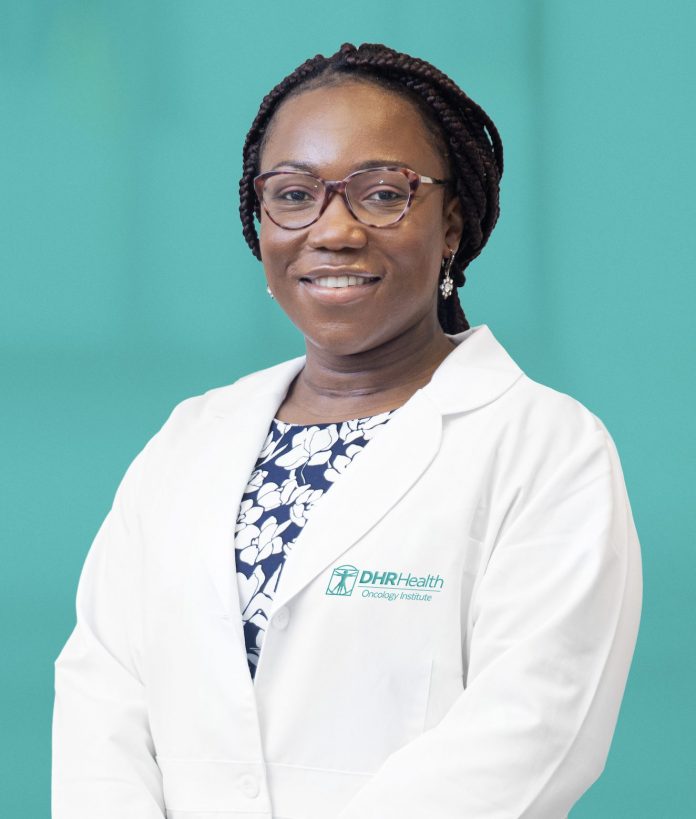
By Relindis Azenwi Fru, M.D.
DHR Health Oncology Institute
Breast Cancer (BC) does not discriminate based on race, ethnicity, socioeconomic status, or religion. However, BC survivorship is lowest amongst minority women, women of lower socioeconomic status, and women of color. This is in part due to lower screening rates, genetics, resources, and lower rates of enrollment in clinical trials.
BC is the most common type of cancer amongst women in the U.S.A., besides skin cancer. Behind lung cancer, BC is the second leading cause of cancer death in women. The average lifetime risk for developing BC is 13%. This translates to 1 in 8 women in the U.S.A.
This year, The American Cancer Society (ACS) estimates that 287,850 women in the U.S.A. will be diagnosed with invasive BC, 51,400 women will be diagnosed with non-invasive BC, and 43,250 women will die of complications from BC.
BC affects us all in different ways, and we should all be familiar with our individual risk for developing breast cancer. Signs and symptoms of breast cancer, in some patients, may include:
1. New lump in breast or underneath the arm
2. Nipple discharge
3. Nipple eversion
4. Thickening, redness, dimpling or flaking of breast skin
5. Breast pain or change in shape/size of breast
Most importantly, some people have no symptoms, and without screening and early detection, these patients may go undiagnosed and untreated for a long time. This, we know, adversely affects BC survival.
Screening for most women begins at age 40 with annual mammograms.
October is Breast Cancer Awareness Month. I encourage every woman and every man in the RGV to participate in getting all eligible women in our community screened for BC. Being female in gender is the strongest risk factor for developing BC. It is important to note, though, that 0.5-1% of BC diagnoses is made in men. We all have a role to play in the fight against BC.
DHR Health is committed to ensuring that our community is not left behind in screening, BC awareness, and BC treatment. At DHR Health, we provide screening, counseling for patients at risk for genetic/hereditary BC, and genetic testing for hereditary cancers. We have a competent and compassionate team of physicians who are here to treat all patients diagnosed with BC in the RGV and beyond. We are also participating in BC clinical trials. Here at DHR Health, we are a part of the solution to a healthier RGV.
For more information or to speak to one of our experts, please call DHR Health Oncology Institute at 956-362-2250.




